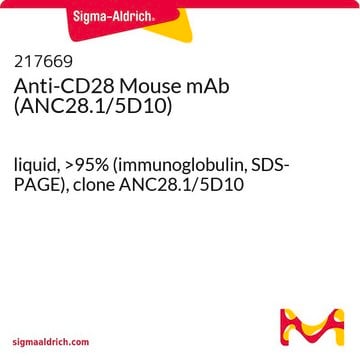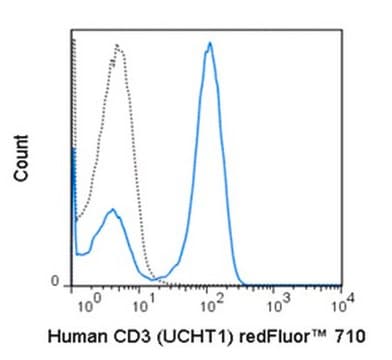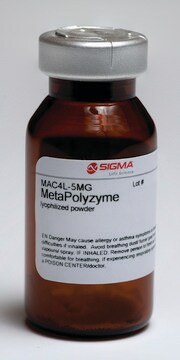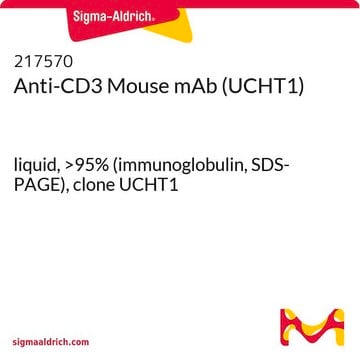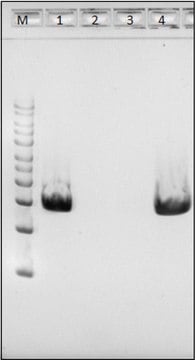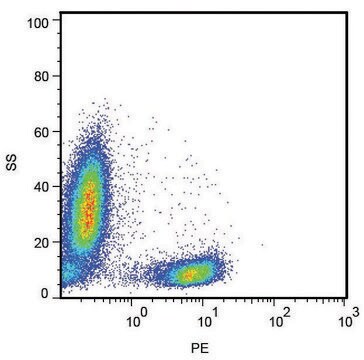C7831
Anti-CD28 antibody, Mouse monoclonal
clone CD28.2, purified from hybridoma cell culture
Synonym(e):
Monoclonal Anti-CD28
About This Item
Empfohlene Produkte
Biologische Quelle
mouse
Qualitätsniveau
Konjugat
unconjugated
Antikörperform
purified immunoglobulin
Antikörper-Produkttyp
primary antibodies
Klon
CD28.2, monoclonal
Form
buffered aqueous solution
Mol-Gew.
antigen 44 kDa
Speziesreaktivität
human, rhesus monkey
Methode(n)
flow cytometry: 5 μL using 1 × 106 cells
immunocytochemistry: suitable
immunohistochemistry (frozen sections): suitable
Isotyp
IgG1
UniProt-Hinterlegungsnummer
Versandbedingung
wet ice
Lagertemp.
2-8°C
Posttranslationale Modifikation Target
unmodified
Angaben zum Gen
human ... CD28(940)
Suchen Sie nach ähnlichen Produkten? Aufrufen Leitfaden zum Produktvergleich
Allgemeine Beschreibung
Spezifität
5th Workshop: code no. CD28.05.
Immunogen
Anwendung
- Flow cytometry at a dilution of 5μL using 1 × 106 cells
- Immunocytochemistry
- Immunohistochemistry (frozen sections)
Biochem./physiol. Wirkung
Zielbeschreibung
Physikalische Form
Haftungsausschluss
Sie haben nicht das passende Produkt gefunden?
Probieren Sie unser Produkt-Auswahlhilfe. aus.
Lagerklassenschlüssel
10 - Combustible liquids
WGK
WGK 3
Flammpunkt (°F)
Not applicable
Flammpunkt (°C)
Not applicable
Analysenzertifikate (COA)
Suchen Sie nach Analysenzertifikate (COA), indem Sie die Lot-/Chargennummer des Produkts eingeben. Lot- und Chargennummern sind auf dem Produktetikett hinter den Wörtern ‘Lot’ oder ‘Batch’ (Lot oder Charge) zu finden.
Besitzen Sie dieses Produkt bereits?
In der Dokumentenbibliothek finden Sie die Dokumentation zu den Produkten, die Sie kürzlich erworben haben.
Unser Team von Wissenschaftlern verfügt über Erfahrung in allen Forschungsbereichen einschließlich Life Science, Materialwissenschaften, chemischer Synthese, Chromatographie, Analytik und vielen mehr..
Setzen Sie sich mit dem technischen Dienst in Verbindung.
